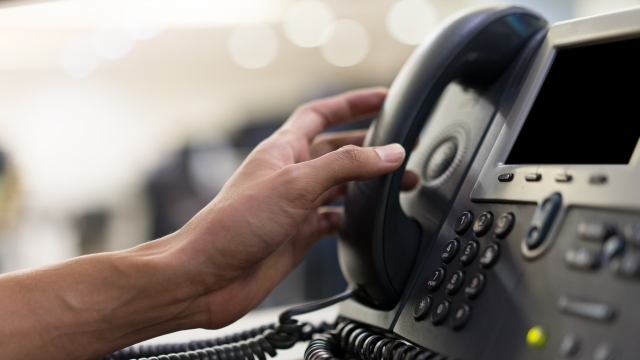The numbers are staggering, according to domestic abuse experts. Almost 20 people each minute, on average, are physically abused by an intimate partner across the United States, according to the National Coalition Against Domestic Violence. The organization says that comes out to over 10 million men and women in just one year.
Experts say abuse is about power and control — and having those tough but necessary conversations with a survivor of abuse is not easy.
The case of Virginia resident Kathryn Dean brought the worst-case scenario in domestic abuse to light, sparking more conversations about what we all can do to help protect victims of intimate abuse.
Last year, Dean was killed even after calls to police, a protective order and pleas to family members as they tried to all keep her safe. Her husband of around three years, Ben Wynkoop, was arrested and later convicted of second-degree murder.
Katelyn Dean, Kathryn's daughter, sobbed as she recounted those painful moments when her mother expressed worry that she could be harmed, even lethally.
"I just couldn't imagine it, because she wasn't just saying it. Like, she was really scared," Katelyn said of her mother's pleas for help.
Judge Ashley Wilcot of Scripps network Court TV said Dean did everything right, but emphasized that it's still important to always speak out and tell friends and family, and, when necessary, file for a protective order.
"The only consolation — and it's very small — the only thing, by doing all of this, is authorities had the evidence and he (Wynkoop) was identified, he was arrested, and he was convicted of second-degree murder," Wilcot said. "Does that make her come back? Absolutely not. Is that justice in terms of at least the person's off the streets, serving time, not getting out of jail after killing her? Yes."
SEE MORE: Wife repeatedly said husband was going to kill her before her murder
Scripps News's Alexa Liacko recalled her own experience after having to take out a protective order on a man who was accused of stalking her after watching her on television.
It was the first time Liacko addressed the matter publicly.
"It really feels like sometimes the system doesn't protect the people who were victimized here. My house was broken into. Personal, very intimate clothing items of mine were taken from me, and some other very uncomfortable things happened in my apartment, that I found out later that he did. He admitted this all in a police report," she said.
Liacko said she felt like all she could do at that point was "get a piece of paper," referring to the protective order.
Because the individual was active in the U.S. military, she said she went to both the police and the military.
Liacko said that at the time she thought, "What else can I do? I'm scared."
She said, "Looking back now, one of the scariest moments was knowing that despite this person being arrested and charged, they would be walking free until the trial. And after serving less than two years in prison, that person is free again. My protective order couldn’t make me feel safer."
"I struggled to sleep, had regular nightmares — and when I began traveling for work, I struggled to get through the night in an unfamiliar hotel room. I thought talking to family and friends about the situation would be enough to help me feel safe, but it never was," she said. "Almost four years after my home was broken into, I finally sought therapy. I finally understood my hyper-vigilant behavior and why my body never fully felt at peace, even in my own home."
The National Domestic Violence Hotline says that it's not always easy to identify signs of potential abusive behavior at the start of a relationship or from a simple interaction. Experts say every interaction or relationship is different.
The group offers help to people in need by offering a hotline where people can call to get expert advice. That number is 1-800-799-SAFE. Anyone can also chat with someone at the hotline by visiting their website.
And for another possibly more discreet method of reaching out, the hotline accepts texts at their number 88788 — just text START to begin a conversation. The hotline has been experiencing a high number of calls, so wait times could be up to 15 minutes.
Liacko said, "I still, to this day, feel fearful from time to time when I’m home alone, traveling or walking my dog at night. I still look over my shoulder. But, it feels more manageable than it ever has, and it feels empowering to speak about it. I’ve stayed quiet about this for six years, anxious to hear what people would think and worried that it would impact the sense of safety that I worked so hard to rebuild," she said. "But, my job affords me the privilege to have a voice and be a voice. And I want to use that to help and empower anyone that needs to hear the message: Ask for help, research resources and lean more on the people around you than you think you need to. If we speak about experiences like this more, it's my hope that more people, especially women, will be safer and feel safer every day."
The National Intimate Partner and Sexual Violence Survey reported that about 1 in 3 women and 1 in 6 men have experienced stalking at some point in their lives, according to data published by the U.S. Centers for Disease Control and Prevention.
Trending stories at Scrippsnews.com




